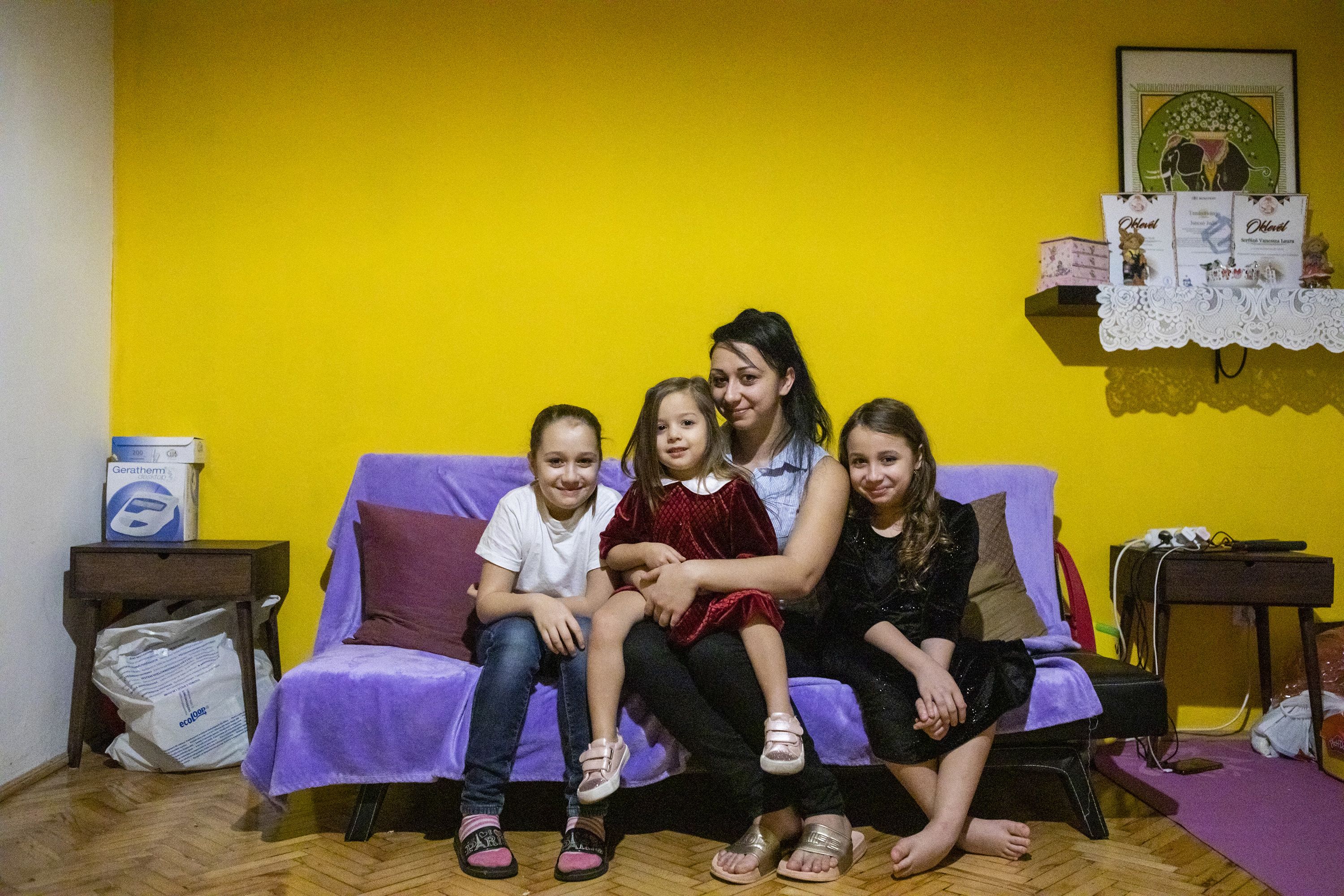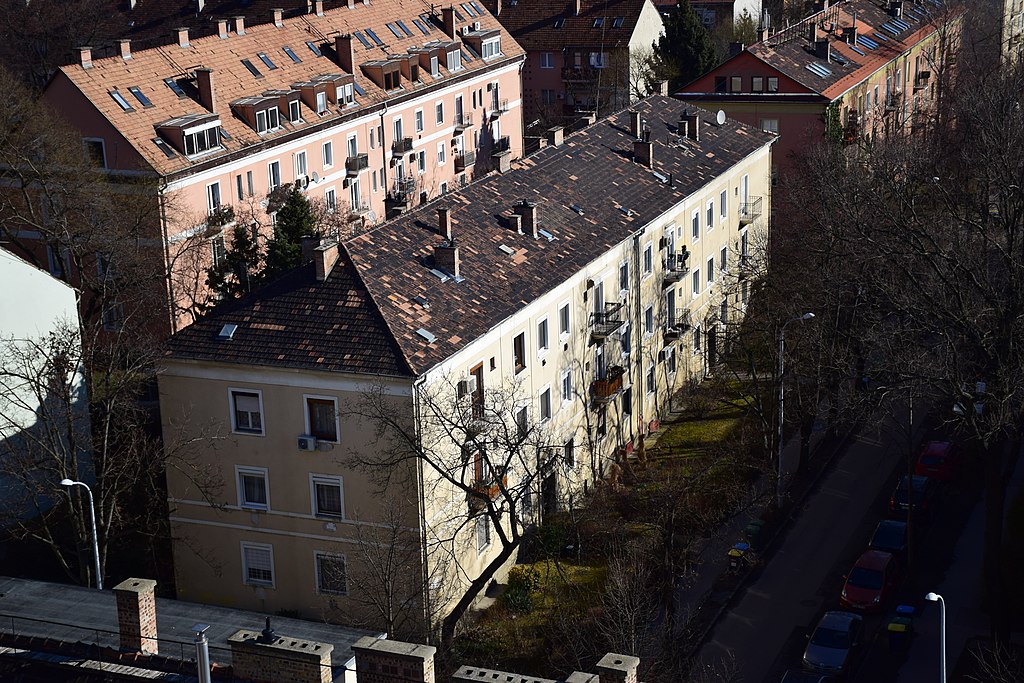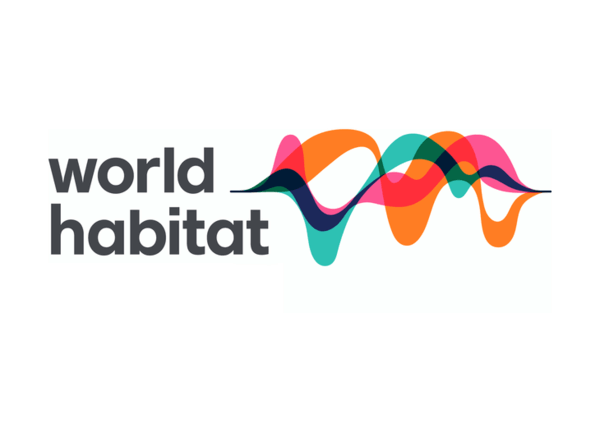 - © Gábor Bankó (nlc.hu)
- © Gábor Bankó (nlc.hu) - © Antissimo, CC BY-SA 4.0 <https://creativecommons.org/licenses/by-sa/4.0>, via Wikimedia Commons
- © Antissimo, CC BY-SA 4.0 <https://creativecommons.org/licenses/by-sa/4.0>, via Wikimedia Commons
City
Budapest
Main actors
Local Government, NGO / Philanthropy, other
Project area
Whole City/Administrative Region
Duration
Ongoing since 2014
A long-term sustainable initiative to provide adequate housing for people in need
Developing and Operating Social Housing and Social Care Programmes in Budapest is a housing renovation, employment support and housing rights advocacy project that delivers permanent, affordable rental homes for homeless and low-income people. The project supports them in developing the skills necessary to live stable and independent lives, and, ultimately, to integrate into wider society.
The project works with partners, volunteers and future tenants in bringing empty properties and plots of land back into use as affordable rental housing for homeless people and those on low incomes. It draws inspiration from the ‘Housing First’ model first developed in the United States, integrating housing with social support for tenants with a view to helping them be self-reliant and independent.
World Habitat Awards
This project was shortlisted for the 'World Habitat Awards' in the following category: Bronze.
Homelessness is a major problem in Hungary. Poverty is a pressing social issue, with an estimated two in every five (40%) people affected. Millions live in poor conditions and experience fuel poverty, while around 15,000 live on the streets or in shelters, and almost one-in-seven (15%) live with severe housing deprivation. There is no active commitment from government to resolve these issues. In 2018, it made rough sleeping a crime, despite there being three times as many homeless people as there are shelter places.
The project was set up by From Streets to Homes Association (Utcából Lakásba Egyesület or ULE) to make creative use of empty properties and land in Budapest, while also offering potentially life-changing support to low-income and vulnerable populations. The project has been developed in a context in which street homelessness is criminalised and there is no functioning welfare state. It is the only project in the country that delivers decent permanent housing for homeless people, in contrast to the shelter system prevalent across Europe.
ULE is one of the first organisations in Eastern Europe to adapt Housing First to the uniquely challenging post-Soviet Eastern European housing context, in which the right to housing is under threat. The organisation was founded in 2014 by a group of activists who had intervened to prevent the demolition of makeshift huts in which homeless people were living in Budapest’s Terebes Forest. The demolitions were aborted, and the first municipal rental flats were offered as social housing. ULE began operating in the socially and economically disadvantaged outskirts of the city, where inequality, destitution and street homelessness are highest.
The project renovates abandoned, municipality-owned flats, mostly in the 10th, 19th and 20th district municipalities of Budapest. The renovations are carried out by partner organisations, private donors, volunteers and those who will eventually live in the buildings. ULE also owns five homes – all used in its ‘Housing Now!’ social housing programme. Some houses are also provided by private homeowners for social housing purposes. In addition, a small number of Scandinavian-style cheap mobile homes on empty plots of land donated by a private donor have been built.
When a home becomes available, ULE collaborates with local social care institutions to reach potential tenants, who can apply directly for housing. The selection process is based largely on the vulnerability of the people, how long they have been homeless and whether they have a plan for paying rent. The project prioritises homeless people who live in ‘huts’ or in temporary shelters. Many of their tenants are elderly or disabled people who receive pensions or welfare, and who otherwise would live in the woods. Some are families (sometimes single mothers) who are at risk of having their children taken away from them. A third of tenants are from the persecuted Roma community. A large portion of their clients live with health impairments, disabilities, or severe illnesses. Some have also been living in women’s shelters.
Renovations are carried out by volunteers and future tenants using donated tools and construction materials. After renovating the property and moving in, individual tenancy contracts and recovery plans are devised - there are no final deadlines or conditions for tenancy. The rent is considerably lower than the market average, thus providing affordable options for previously homeless people.
ULE works with their clients/tenants to understand their situation and provide professional help through an affiliated case worker, support with mental health and other needs. Their ‘Give Work’ programme connects their tenants, and others who are affected by housing poverty, to employers who are ready to offer them full- or part-time employment.
The amount and type of social work provided depends upon the needs and preferences of the tenants, who have the right to self-determination. Each tenant has a personal social worker who supports them to stabilise their life after moving in. They help with household management, applying for benefits, access to health services and crisis management. ULE exercises its belief that housing is a human right by providing people with a more secure foundation in their lives than that on offer through the shelter system.
Finally, the project supports people to find work and income opportunities through training. A website connects them with prospective employers. By improving job and stable income prospects, it also helps secure their housing situation long-term. Tenants who take part in renovations of their future home also learn new skills.
Renovation, maintenance and leasing are all managed by ULE.
ULE works with partners in various sectors. It meets regularly with local government to discuss housing issues and fosters strong connections with local communities and institutions. Communication with local social care institutions, such as homeless shelters, single mothers’ shelters and prevention centres, is essential. ULE also works with social care agencies, such as social workers, family therapists and rehabilitation workers, and neighbourhood community groups, in client selection and reintegration.
ULE is supported by an advisory board made up of members of other local non-governmental organisations (NGOs). The Foundation for Social Responsibility is a key partner, helping with finance and networking. ULE’s current office is rented from the Gólya Co-operative café, which supports its ideas and efforts. The City is for All group is a major ally in lobbying, advocacy and campaigning efforts, while Habitat for Humanity Hungary also provides support in these areas. The Oliver Twist Foundation provides advice and guidance, while the Street Lawyer Association provides clients with free legal advice when needed.
With few resources available to support homeless people and homelessness organisations, ULE relies on creative campaigns using crowdfunding, goodwill ambassadors and charity events to raise funds. It has raised over US $51,000 via crowdfunding alone. In 2019, around half of its funding came from small donations. Forty members of the public provide micro-donations on a monthly basis. Corporate partners and donors are Erste Bank, Otthon Centrum, Lush Hungary and the Polgár Foundation.
ULE’s reliance on community and local donations reflects the lack of state support for homelessness organisations. These challenges, however, have contributed to them creating a social housing model that is financially stable and effective. The homes provided are explicitly used as social housing, so the agreed rent to owners (individuals or municipalities) is considerably lower than in the general housing market.
Since 2014, 29 homes have been provided for 66 people in some of the poorest districts of Budapest. It has worked with around 100 community volunteers to renovate homes and supported 50 people per year back into work through its ‘Give Work’ programme.
ULE changes public perceptions of homelessness through media campaigns. It shares tenant stories and uses data and case studies to raise awareness and push for governmental policy changes. The district governments they work with are those that have been politically open to their proposals, partly due to their continuing lobbying and campaigning efforts.
More than 100 volunteers have taken an active role in renovations, communications and logistics, translations services, fundraising and campaign work, organising and co-ordinating demonstrations, manufacturing and selling merchandise, helping with transport/lifts, and providing pro-bono services, such as legal guidance.
There is also an environmental impact, as the project brings empty buildings back into use. They utilize donated building materials, second-hand tools and construction equipment. The renovations are simple and low cost and aim to reduce the fuel bills of households. Similarly, the Scandinavian-style mobile homes they manage are specifically designed for low costs and low emissions.
While ULE acknowledges that their project can only be small-scale in the current political context, it continues to raise awareness in the hope that the state will have no choice but to address the issue of housing provision. ULE plans to increase its lobbying and policy activities to strengthen public support and partnerships between organisations. It is also working to involve more private homeowners in the programme and grow its housing stock.
The project has developed into an established programme across five districts in Budapest. Despite poor social infrastructure, limited social housing and a lack of support for homelessness agencies, the model has effectively scaled-up locally. The programmes are designed so that municipalities and NGOs can implement them in any city or town in Hungary, depending on the available housing. ULE is currently in talks with Budapest’s 23rd district government to expand its existing work in the district.
External links / documents
On Map
The Map will be displayed after accepting cookie policy
